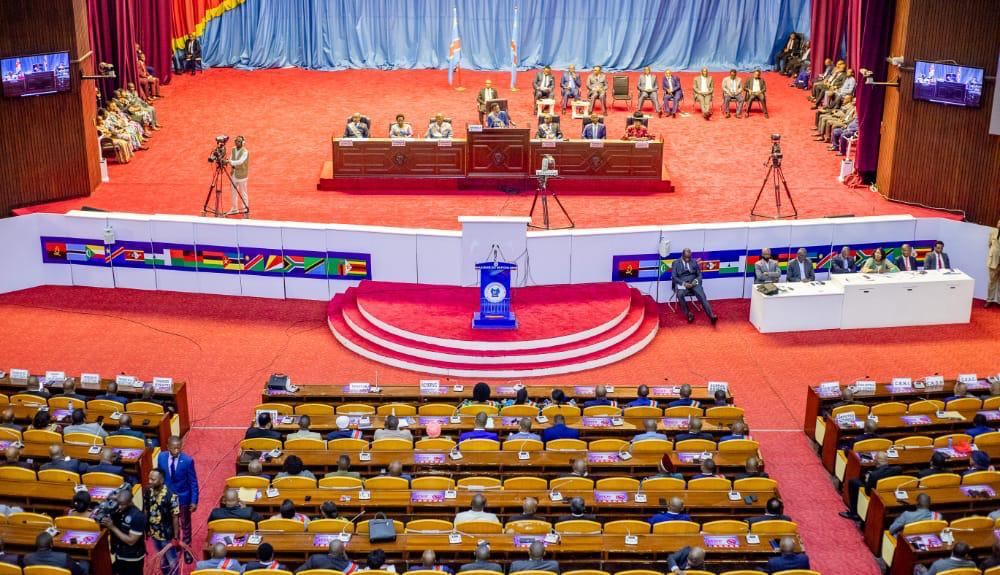
The Centre de Recherches en Finances Publiques et Développement Local (CREFDL) recently published an in-depth review of the projected 2025 budget for the Democratic Republic of Congo (DRC), particularly focusing on the allocation for the National Assembly and the Senate. The findings reveal alarming irregularities that could have far-reaching implications for the nation’s financial health, governance, and development. One of the most critical issues is the inclusion of 13 additional deputies, bringing the total number of paid officials to 513, when the law only mandates 500 deputies.
Key Findings:
The inclusion of these extra 13 deputies is projected to cost the Congolese treasury $1.5 million USD annually, a financial burden that CREFDL has labeled as “irregular under the law.” This raises concerns not only about legal compliance but also about the effective use of public funds.
In addition to the deputies, the personnel employed in the National Assembly far exceeds what is stipulated by the Internal Regulations. The analysis shows that there are 2,756 employees, compared to the 208 allowed by law. This bloated workforce will result in substantial, unjustified expenses. According to Articles 255-256 of the Internal Regulations, the staff allocation should be:
- 58 political personnel
- 70 support staff
- 80 domestic staff
This sharp contrast between what the law prescribes and the actual number of employees presents significant financial inefficiencies.
Implications for National Development:
The continued strain on the national budget due to such irregularities has negative consequences for the overall development of the country. Financial resources that could otherwise be allocated to key sectors such as health, education, and infrastructure are being redirected towards maintaining an overstaffed and overfunded legislature. This misallocation of resources undermines efforts to improve essential public services and hampers progress in addressing the nation’s developmental challenges.
Transparency Concerns:
The lack of transparency surrounding the Special Intervention Fund is another major issue raised by the CREFDL. Despite a 7.7% decrease in the allocation to this fund compared to 2024, concerns remain about its credibility and accountability. The vague details make it difficult to track how these funds are used, further aggravating the problem of fiscal opacity.
Senate Irregularities:
Similar issues are seen in the Senate, where the personnel count also exceeds legal limits. The current setup includes 681 extra employees, violating the Senate’s Internal Regulations, which only allow for:
- 49 political staff
- 71 support staff
- 80 domestic staff
Additionally, the Senate has witnessed an $8 million USD increase in its Special Intervention Fund, further exacerbating concerns about the misuse of public funds.
Conclusion:
The report by CREFDL serves as a wake-up call for the Congolese government to reassess its fiscal priorities and address the ongoing budgetary inefficiencies. There is a pressing need for greater transparency and adherence to legal limits in terms of both personnel and fund allocations in the National Assembly and Senate. Without immediate reforms, the nation’s financial stability and development prospects may face severe setbacks.
Recommendations:
The CREFDL recommends that the government urgently audit the staff numbers and budgetary allocations of both legislative bodies. Furthermore, both the National Assembly and Senate must comply with the limits set by their respective Internal Regulations to curb excessive spending.
In conclusion, the mismanagement of public funds in the 2025 budget could result in significant financial losses, undermining the country’s socio-economic development. The CREFDL’s analysis provides a clear path for reform, but it requires the government’s commitment to ensuring financial discipline and accountability.
This in-depth review highlights the importance of fiscal prudence and the consequences of budgetary mismanagement. For more updates on this issue, stay tuned to our analysis section for ongoing developments in public finance and governance in the DRC.


